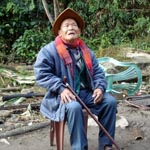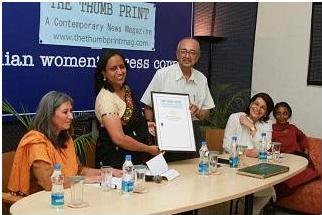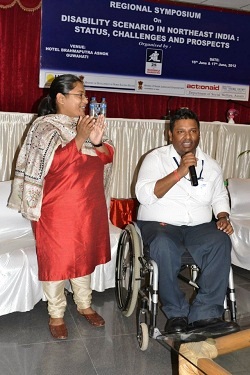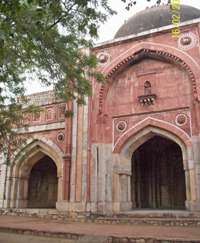"It was just a chance meeting with Political Officer, PLS James alias James Saab and I lapped up a job by invitation,'' recalls my father Sokjar, with pride and joy intact after nearly 70 years of that day, as if caught in a time-warp.The year was 1946 - after end of the Second World War and a year before India's Independence.
Looking back, the employment was at the lowest level of service. But working for Her Majesty Queen of England's must have been a different feeling even if not a matter of pride. After all, it was during a trying period in his youth that he James Saab gave him a job offer.
Aloof of World War II that ended in 1945 with geo-political equations changed forever, there were a set of innocent boys and men from Galos in Siang belt that traversed across the mountains, hills, valleys, rivers and rivulets including mighty Brahmaputra in search of livelihood under the British regime.
Innocence or ignorance, but it is a fact that India's penultimate year of war for Independence that year hardly had any bearing on the poverty stricken people who worked hard for few months to feed themselves for rest of the months a year. With or without the collusion of administrators, exploitation by the big businessmen was rampant.
"I had just lost my source of livelihood in cane harvesting business over a payment dispute with Jalan Nyigom (meaning `officer' in Galo dialect),'' he remembers the events that led to his meeting with James Saab in 1946, with vivid detail. Such sharp memory speaks volumes of his heart-ache that has prompted him to recall every bit. "That year, I had sub-contracted cane cultivation from Jalan Nyigom from Dibrugarh," continues my dad.
Murlidhar Jalan or Jalan Nyigom was one of the biggest businessmen of his time in the region. Jalan is best remembered for his contribution in setting up the present Assam Medical College. He donated land of Borbari and Ethelwood Tea estate to Assam Government when the then Chief Minister Gopinath Bordoloi was in a fix over establishing a medical college; despite Assam having two medical institutions at Dibrugarh (that is, Berry White Medical School and 56 Command Military Hospital established).
Jalan's land donation helped the BC Roy committee resolved that fix leading upto establishment of Assam Medical College in 1946 immediately after Second World War. The college went on to induct its first batch of students by September 1947 with 56 boys and a girl against 65 approved seats.
As if to stamp his expertise in the cane cultivation business, my father informs, "I got into the business quite early. You will be surprised that first time when I went to do business in a place called Dekuathana, I wore nothing; I worked nude during that entire season. In the second year, I went to a place called Tengahaali. By then, I started wearing loin clothes." What he spoke of means he started wearing loin clothes because he entered teenage, and that he was only a little boy when he joined cultivation. By that measure, in 1946, he was a veteran into cane cultivation business, doubling as a labourer and sub-contractor to maximize his earnings.
"Walker's office had issued wage rate order for Rs 4 and Rs 6 for the labourers and the contractors respectively for 'Ekkho' respectively," he says. Ekkho? Walker was a British officer.

Labourers had to harvest canes, and then split each cane into two pieces. Twenty such pieces were referred to as a 'Podum'. Five such Podums were called an 'Ekkho'.
That's 100 split cane pieces.
Mid-way into the cultivation season, conflict arose when Jalan decided to pay Rs 2 less to contractors and labourers against the stipulated norms specified by Tirap Frontier Tract office, Margherita.
"It meant a loss of Rs 4 per day for me since I doubled as a contractor and labourer," he recalls. My father hits 100 years of age, but still feels betrayed by what Jalan before Independence.
Business environment and industrial relations were not different in their time. Those days, big business houses wielded considerable power and control over administrative mechanisms; more so when power-structure was in transition after World War II.
Walker was a new promotee from Assistant Political Officer and still grappled with his new assignments.
He remembers how the entire working-class went on a mass protest, resorting to `tool-down'; and went to Walker Nyigom. Within weeks of their complaint, PO Walker along with contractor, Jalan came to the site at Sadiya with a huge trunk.
"Unlike today, in those days, justice delivery system was faster. At least, one knew which side one is headed for, without losing much sleep. Walker Nyigom was a man of few words and was not very much into PR exercise, unlike PLS James who believed in spending time with people and understanding ground realities. That day, Walker gave the workers two things," my father narrates, reliving the moment when Walker opened his trunk.
"It contained currency, all in coins those days!' he recalls excited like a person drawing his first salary.
'First, Walker Nyigom gave us-the labourers and sub-contractors from Siang belt, our dues at the agreed rate. Remember, they were Britishers who believed in fair-play,' he says without hiding his distaste for systems today, and continues, "And also, he gave us a sealed envelope and asked us to hand-deliver the same to the Political Officer of Siang, PLS James' office at Pasighat."
"The same day, a group of us from Siang belt including Karsen Riba, Gidam Yomgam, Gibi Mindo, Gosen Basar and Bojir Zirdo left Sadiya for Pasighat."
On reaching Pasighat, the group gave the envelope to Base Superintendent, Gangadhar Rai Barua. This letter said: "None of you will be allowed to venture into the other side of Brahmaputra for cane business hereafter, thus read-out Barua Nyigom on behalf of PLS James."
With a chuckle and without conceding much, he says, "Neither the businessmen nor the administrators have changed to this day. They only listen to people who have more resources." He still believes Jalan Nyigom was behind that order that snatched their livelihood and that Walker Nyigom, the British man, was just a messenger.
As if he is guilty of accusing the messenger of being biased, in a flash he adds, "Britishers were very fair administrators. On one hand, they snatched our only source of bread and butter. On the other, at Pasighat, within few weeks we were invited to join the service of British Ranee, by James Saab."
"Those days appointments happened by invitations; unlike these days where all kind of funny antics are indulged in," my father narrates, with a degree of haughtiness. In 1946, a year after the Second World War and a year before India's independence, my father was an 'Orkora' by order of Her Majesty, Queen of England.
My father talks of life in times of despair. "As it happens, many times we have days when trouble does not seem to get over. But, we have few days when good fortune turns quick and fast, never letting a moment of sadness or depression. Mind you, it is emotions that you show in moments of despair that design one's fortune," the old man told me as we finished our telephonic conversation on his fight for justice against Jalan decades ago.
Nyigom means officer. Sokjar Gamlin now lives in Aalo in West Siang district, Arunachal Pradesh.
Find us on facebook: facebook.com/TheThumbPrintMag







































